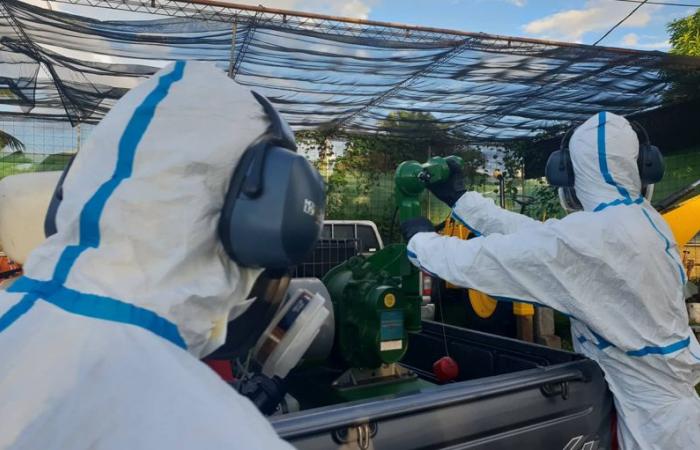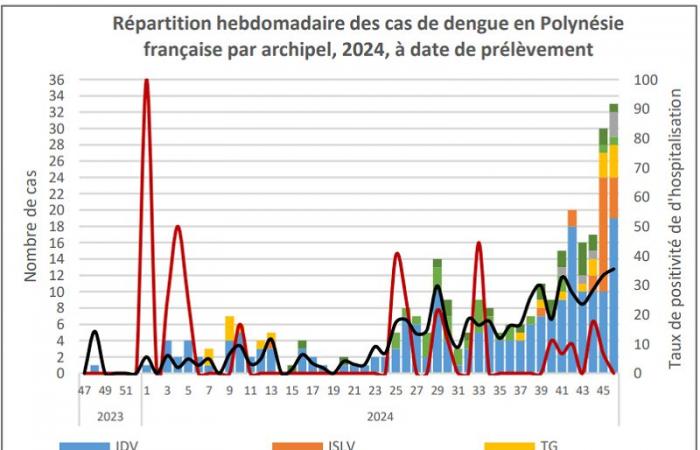© VUP/Archives Radio 1
After several weeks of “alert” phase, the health authorities have moved Tahiti and Moorea into a “proven epidemic” of dengue fever, the last stage before the “crisis” situation. The consequence of the discovery of 93 new cases in one week, a new peak since the start of the circulation of the disease, at the end of 2023. The circulation of the virus transmitted by mosquitoes also continues in the archipelagos, as confirmed by the latest bulletin health surveillance. New cases have been identified in Bora Bora, Rangiroa, Ua Pou, Fakarava and for the first time in Tikehau. The authorities are calling for vigilance more than ever – protection against bites, destruction of larval breeding sites, consultation in the event of suspicious symptoms – and must announce new control measures which will be put in place in the coming days.
With the discovery of new cases, in Bora Bora, Rangiroa, Ua Pou, Fakarava and for the first time in Tikehau, Tahiti and Moorea move from “alert” phase to “proven epidemic”, indicates the Arass bulletin published this Tuesday . In total, 306 cases have been officially detected since the end of November 2023. “That is to say, we have exceeded a threshold where we consider that we are in relatively intense trafficexplains Dr Henri-Pierre Mallet, head of the Arass health monitoring office. However, I think we will not go into crisis. The crisis is when there is really a shift in capacity, not only in surveillance and vector control, but even in healthcare capacity. »
No acute crisis, therefore, because in reality, he explains, the general landscape has evolved: “Our dengue epidemics are becoming more and more endemic with fairly flattened curves. Now, it’s a little bit all the time in reality, which means that there is still immunity in the population which prevents us from having a big spike. » If it was dengue type 2 which arrived first, at the end of November 2023, it is now dengue type 1 which is 70% in the majority, but against which “the population is mostly immune”continues Henri-Pierre Mallet. The subjects most at risk are therefore those under 20, who represent 36% of positive screenings, recent residents and tourists.
Despite everything, the health authorities are planning a communication campaign, “on vector control, because it is necessary”says Dr. Mallet again, “towards tourists, and on inter-island travel because we must avoid spreading to islands which are not yet affected. »
More information to come







